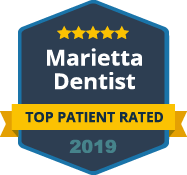The Role of a Dentist in Addressing Sleep Disorders

When we think about getting a good night’s sleep, we often consider factors like a comfortable mattress or a quiet room. However, what many may not realize is that our dental health plays a crucial role in the quality of our sleep. At Dental Care Kennestone in Marietta, our team is dedicated not only to your oral health but also to enhancing your overall well-being, including your sleep quality.
How Can a Dentist Help You Sleep Better?
1. Identifying and Treating Bruxism
One common dental issue that can affect sleep is bruxism, or teeth grinding. Bruxism often occurs during sleep and can lead to disrupted sleep patterns, headaches, jaw pain, and even damage to your teeth. At Dental Care Kennestone, we offer custom-made night guards for patients who grind their teeth. These guards protect the teeth and reduce the strain on the jaw muscles, leading to a more peaceful and pain-free sleep.
2. Addressing Sleep Apnea
Sleep apnea, a condition where breathing stops intermittently during sleep, can significantly impact your sleep quality and overall health. Dentists play a key role in identifying signs of sleep apnea, such as worn teeth (from grinding) or a small jaw, which can indicate a higher risk for this condition. While severe cases may require CPAP therapy or surgery, mild to moderate sleep apnea can often be treated with oral appliances that adjust the position of the jaw or tongue to keep the airway open.
3. Managing TMJ Disorders
Temporomandibular Joint Disorder (TMJ) can cause pain and discomfort in the jaw, leading to difficulties in falling and staying asleep. A dentist can help diagnose TMJ disorders and provide treatments such as oral appliances, exercises, or therapy to alleviate pain and improve sleep quality.
4. Promoting Overall Oral Health
Poor oral health can lead to discomfort or pain that disrupts sleep. Regular dental check-ups at Dental Care Kennestone ensure that issues like cavities, gum disease, or infections are treated promptly, reducing discomfort and promoting better sleep.
5. Educating on Good Oral Hygiene Practices
Good oral hygiene practices not only prevent dental problems but can also contribute to better sleep. For instance, reducing the intake of sugary foods and drinks can decrease the risk of tooth decay and gum disease, which can cause discomfort at night.
The Connection Between Oral Health and Sleep Quality
The link between oral health and sleep quality is a two-way street. Poor sleep can lead to an increase in oral health problems, while oral health issues can disrupt sleep. Stress and anxiety, which often worsen with lack of sleep, can lead to more teeth grinding. On the other hand, addressing oral health concerns can lead to better sleep, which in turn can reduce stress and improve overall health.
Call a Trusted Marietta Dentist for A More Restful Sleep
At Dental Care Kennestone in Marietta, we understand the importance of a holistic approach to health. By addressing dental issues that can impact your sleep, we aim to not only enhance your oral health but also improve your overall quality of life. Whether it’s through providing night guards for bruxism, treating sleep apnea, managing TMJ disorders, or ensuring optimal oral health, our goal is to help you achieve both a healthy smile and a good night’s sleep.
Posted on behalf of Dental Care Center at Kennestone







